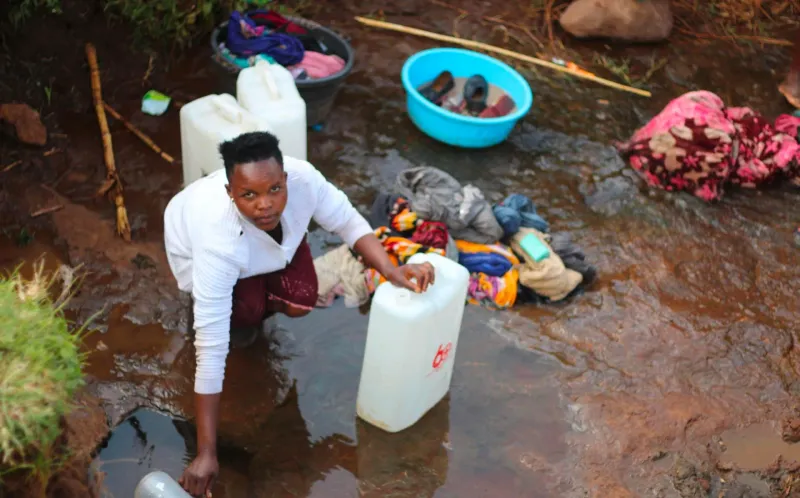
Survivors of the recent landslides in Kween District are raising alarm over the harsh conditions at the temporary resettlement site at Benet Primary School, where they were moved after destructive mudslides devastated their communities.
Dozens of displaced households report that they are struggling to obtain food, clean drinking water, bedding, and medical care. Some of the affected families have begun leaving the camp to search for basic supplies, while others have opted to return to their vulnerable homes because life at the site has become unbearable.
Women and children are bearing the greatest burden. According to Lilian Cherotich, a resident of Tulwo Village in Kwosir Sub-County, the scarcity of safe water has pushed them to rely on a nearby stream used by livestock, heightening the risk of contamination at the camp.
Cherotich is appealing to government to extend the piped water system from Benet Health Centre II to the camp to improve hygiene and curb possible disease outbreaks.
Vincent Mwandil, from Tuikat Sub-County, notes that the absence of health services has left many children unwell. He reports that 13 children and six adults, among them expectant mothers, are suffering from cough and pneumonia brought on by cold weather and inadequate nutrition.
Expectant mothers remain particularly at risk. Patricia Chelangat says they have no access to antenatal care and cannot easily reach Kaproron Health Centre IV, the nearest facility, which is over 25 kilometres away. She also says relief bedding provided at the camp is unsuitable for pregnant women.
Chelangat is pleading with government to bring maternal services closer to the displaced community. Peter Masai Mwanga, the camp’s acting storekeeper, confirms that the small amount of food supplied when the survivors first arrived—including beans, posho, and other essentials—has already run out.
Mwanga explains that most families are now relying on the generosity of volunteers and neighbouring churches to be able to eat. Paul Siya, the LC3 Chairperson of Tuikat Sub-County, describes the entire relocation process as disappointing. He says the victims have been left hungry, are receiving minimal or no assistance, and their condition is worsening. “These people are grieving and deserve humane treatment,” Siya said.
The displaced households fear their plight may intensify if rains return across the Sebei sub-region, potentially triggering more landslides. Mudslides that struck Kween, Kapchorwa, and Bukwo districts in October and November killed at least 21 people, while 11 others are still missing. In response, the State Minister for Relief, Disaster Preparedness and Refugees, Lilian Aber, ordered the immediate evacuation of residents in high-risk zones.
Her directive was issued on November 2 during an emergency meeting at Kapchorwa District Headquarters attended by local officials, security agencies, and humanitarian actors. Aber announced that the Office of the Prime Minister, in partnership with the Uganda Red Cross Society, was mobilising emergency relief and temporary accommodation.
She also disclosed that tents would be erected in Kabelyo Parish, Moyok Sub-County, a site local leaders had deemed safe for relocation. However, this plan stalled when Uganda Wildlife Authority (UWA) rangers reportedly blocked the area identified for temporary settlement, insisting it lies inside Mount Elgon National Park. Survivors claim the rangers, armed with guns, raided the site at night and dismantled tarpaulins and tents set up earlier by the Uganda Red Cross Society.
Consequently, the district disaster committee moved the affected families to Benet Primary School as an alternative shelter. For now, displaced residents continue to call on government and humanitarian groups for urgent aid, clean water, food, bedding, medical supplies, and the establishment of a functional health post at the camp.
URN



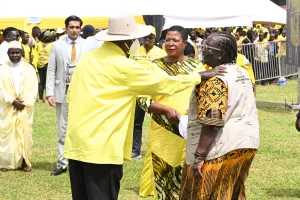

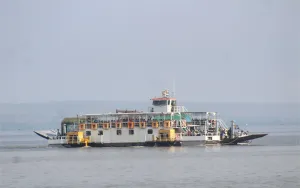
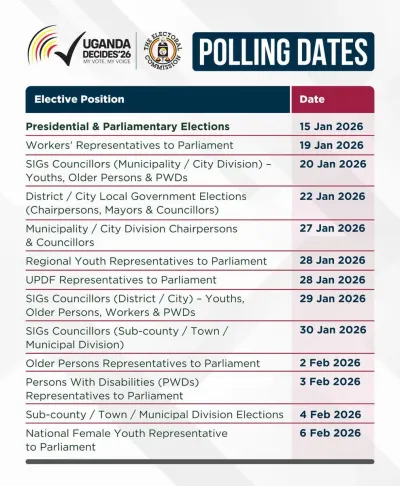



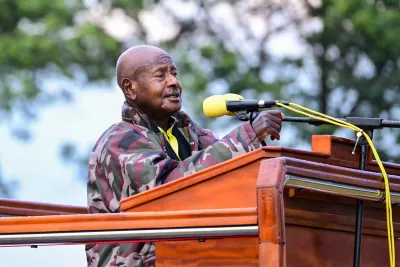
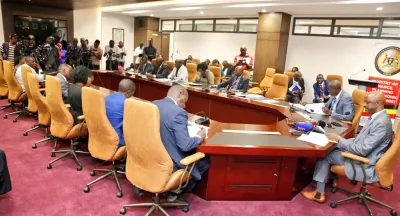


Jason Olinga
Leave a Comment
Your email address will not be published.